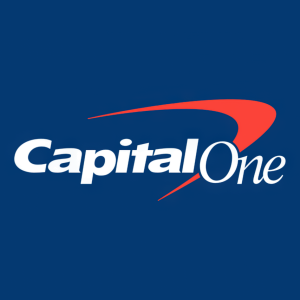Welcome to our dedicated page for Capital One Financial news (Ticker: COF), a resource for investors and traders seeking the latest updates and insights on Capital One Financial stock.
Capital One Financial Corporation (NYSE: COF) is a leading U.S. financial services provider specializing in consumer and commercial banking solutions. This news hub offers investors and industry observers centralized access to official announcements, strategic developments, and market-moving updates.
Track critical information through verified press releases covering earnings results, regulatory filings, product innovations, and leadership changes. Our curated selection includes updates from Capital One's core operations:
• Credit Card Services: New product launches and partnership announcements
• Auto Financing: Industry trends and lending program updates
• Digital Banking: Technology initiatives and security enhancements
• Regulatory Compliance: Financial disclosures and operational adjustments
Bookmark this page for real-time access to Capital One's financial communications, essential for monitoring one of America's most innovative banking institutions. Combine this resource with SEC filings and earnings call transcripts for comprehensive market analysis.
On June 15, 2021, Capital One Financial (NYSE: COF) announced a long-term partnership with Williams-Sonoma, Inc. (NYSE: WSM) as the exclusive issuing partner for their new co-brand and private-label credit card program. This agreement includes brands like Pottery Barn and West Elm, with launch expected by the end of 2021. Capital One will acquire the existing portfolio of Williams-Sonoma credit card accounts. Both companies emphasize a commitment to digital innovation and sustainability, which will enhance customer rewards and experiences in the new program.
Capital One Financial Corporation (NYSE: COF) announced a quarterly dividend of $0.40 per share, payable on May 28, 2021. Stockholders on record as of May 17, 2021 will receive this dividend. Additionally, the company declared dividends on several series of preferred stock, including $10.197944 for Series E, $13.00 for Series G, $15.00 for Series H, $12.50 for Series I, $12.00 for Series J, and $11.5625 for Series K, all payable on June 1, 2021.
Capital One Financial Corporation (NYSE: COF) reported a net income of $3.3 billion for Q1 2021, translating to $7.03 per diluted share, a significant increase from a net income of $2.6 billion in Q4 2020 and a net loss of $1.3 billion in Q1 2020. Total net revenue decreased by 3% to $7.1 billion. Total non-interest expenses fell 7% to $3.7 billion. A substantial $1.1 billion decrease in provision for credit losses contributed positively, alongside a 14.6% Tier 1 capital ratio.
Purchasing Power, LLC, a fintech company specializing in voluntary benefits, has successfully closed a $175.34 million asset-backed securitization. This financing, completed on April 14, 2021, received preliminary ratings from Kroll Bond Rating Agency for four classes of notes. The offering was significantly oversubscribed, indicating strong market interest. Notably, the transaction features a 24-month revolving period and a blended yield of 1.99%, with an advance rate of 89.0% of the collateral value, helping to support Purchasing Power’s innovative employee purchase program.
On April 27, 2021, Capital One Financial Corporation (COF) will announce its Q1 2021 earnings at approximately 4:05 p.m. Eastern Time.
A conference call will follow at 5:00 p.m. Eastern Time to discuss the financial performance for the quarter ending March 31, 2021. Investors can access the earnings release on www.capitalone.com. A replay of the call will be available from two hours post-call until May 11, 2021.
Capital One Financial Corporation (NYSE: COF) announced the appointment of Ime Archibong from Facebook and Craig Williams from Nike to its Board of Directors, with elections slated for May 2021. Archibong brings extensive product and partnership expertise, having led new product experimentation at Facebook. Williams, with over 30 years of experience, previously led the Jordan Brand at Nike and has a robust background in business strategy. Additionally, Pierre Leroy is retiring after 16 years on the board. These changes are expected to enhance leadership and strategic direction at Capital One.
Capital One Financial Corporation (NYSE: COF) has declared a quarterly dividend of $0.40 per share, payable on March 1, 2021, to stockholders of record as of February 17, 2021. The company has consistently issued dividends since its independence in 1995. Additionally, various dividends were declared for preferred stock series, including $10.06345 for Series E, $13.00 for Series G, $15.00 for Series H, $12.50 for Series I, $12.00 for Series J, and $11.5625 for Series K, payable on the same date.
Capital One Financial Corporation (NYSE: COF) reported a net income of $2.6 billion for Q4 2020, up from $2.4 billion in Q3 2020 and $1.2 billion in Q4 2019. Earnings per diluted share increased to $5.35 from $5.06 QoQ and $2.25 YoY. Total net revenue decreased 1% to $7.3 billion, while total non-interest expense rose 13% to $4.0 billion. The Board approved a $7.5 billion stock repurchase program. Despite challenges, Capital One's strategic positioning remains strong amidst ongoing digital transformation.
On January 21, 2021, Capital One Financial Corporation (NYSE: COF) announced it led the banking industry, securing 747 US utility patents in 2020, marking its second consecutive year at the top. The company's OnePatents program drives innovation in AI, machine learning, and blockchain, enhancing customer experiences in banking. Over 1,800 patents have been awarded to more than 1,300 inventors within Capital One, emphasizing a culture of creativity across all employee levels. Capital One remains committed to leveraging technology for impactful banking solutions.
Capital One Financial Corporation (NYSE: COF) will announce its fourth quarter 2020 earnings results on January 26, 2021, at 4:05 p.m. Eastern Time. The earnings release will be followed by a conference call at 5:00 p.m. Eastern Time to discuss the company's financial performance for the quarter ending December 31, 2020. Shareholders can access the earnings release on the company's website. Capital One reported $305.7 billion in deposits and $421.9 billion in total assets as of September 30, 2020.

